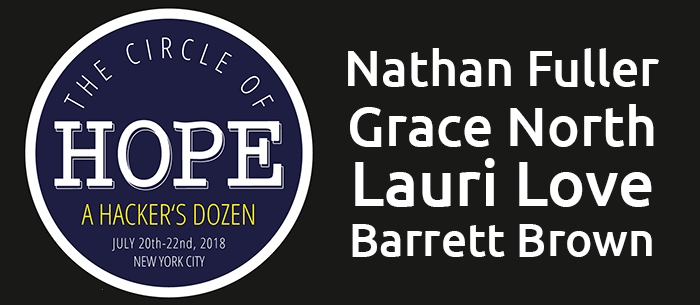
Home Anonymous Operations Civil Liberties in the Digital World The Circle Of HOPE - A Hacker’s Dozen
Sunday 12 August 2018
Hacking Extradition: Fighting the Long Arm of U.S. Law (July 20th-22nd New York City).
The United States punishes computer crimes more severely than any of its western allies, often threatening to imprison digital dissidents for decades for crimes other countries would sanction with fines or probation.
Preventing the U.S. from extraditing alleged hackers across the pond could mean saving a defendant’s life. Earlier this year, U.K. security researcher Lauri Love successfully beat back the U.S.’s attempt to extradite him from Britain, in a redux of Gary McKinnon’s ten year extradition battle which resulted in the "forum bar" that helped protect Love.
But the judges in Lauri’s case went further than protecting only him: The High Court’s ruling condemned the conditions of U.S. prisons, citing dangerously inadequate mental healthcare as a reason to keep Lauri in the U.K. Using his ordeal as a case study, we can see how these extradition cases can have meaningful ramifications beyond a single defendant. Lauri Love, Gary McKinnon, and Richard O’Dwyer have recently shown how to stand up to the United States’ perceived global reach.
- How can we learn from these cases to protect others facing extradition?
- Can we turn a U.K. court ruling into meaningful U.S. prison reform?












